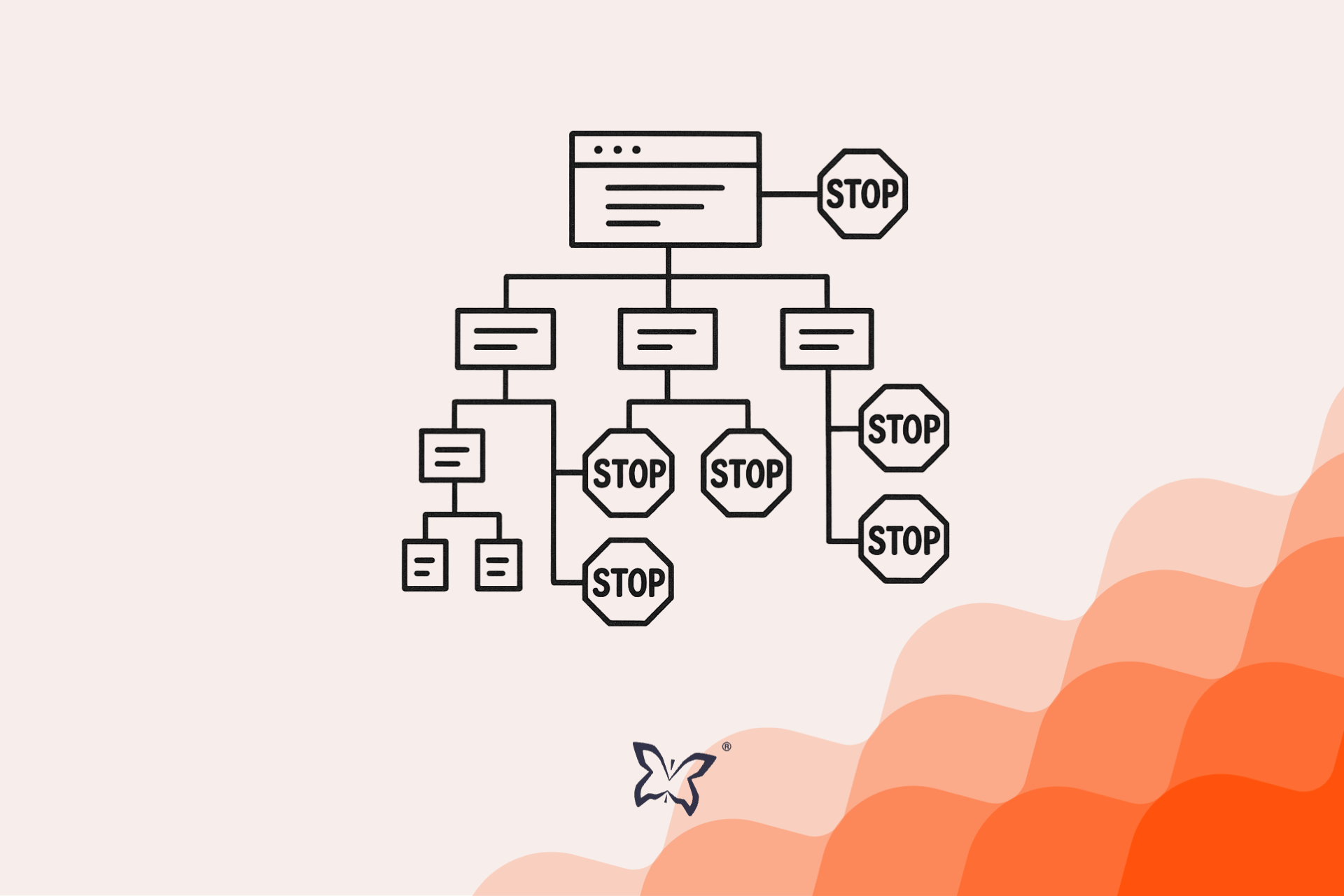We’re taking our meetings online.
We are using a range of online video options so please get in touch to have a chat.

Need expert advice?
Why not give us a call and see how we can help you with your project?
01460 984284We are using a range of online video options so please get in touch to have a chat.

Why not give us a call and see how we can help you with your project?
01460 984284Jargon-free, experience-backed insights to guide your digital decisions.

Pete Fairburn

If you’re planning a new website, digital platform or product, stop for a moment.
Not to rethink your ambition. But to make sure you’re not about to build the wrong thing, in the wrong way, for the wrong reasons.
Especially if you plan to support it with paid advertising, SEO, or other digital marketing spend. No amount of campaign budget will fix a poorly thought-out platform.
We’ve seen what happens when businesses charge ahead without a clear plan. Some survive it. Most pay for it. And a few repeat it more than once.
What’s missing?
Discovery.
Discovery is the work you do before you start designing or coding anything. It’s how you turn ideas into a concrete plan, with clear priorities, realistic budgets, and measurable goals.
It’s not a one-size-fits-all process. We tailor our approach based on where your business is, how complex the project is, and what’s at stake.
Discovery comes in a few different flavours at morphsites:
This is the foundation for any business that wants its website to deliver real results. It might be lead generation, improved conversion, or supporting your sales team.
We ask:
We explore how your website and digital presence can support your growth. So we can plan and create something that works, not just something that looks good.
Ideal for businesses with more operational complexity. That might include system integrations, customer or dealer portals, or replacing fragmented tools with something scalable.
We:
It’s a strategic deep-dive that ensures we’re building the right thing, not just what someone thought they needed during a rushed meeting.
If your business is going through digital transformation or consolidation, this is the route we recommend.
This approach combines:
It’s the most comprehensive version of discovery. It’s also the one that saves businesses from six-figure rebuilds when the original site fails to deliver.
Because not every business sees the value in it, at least not initially.
Discovery doesn’t come with extensive visuals. It doesn’t feel like tangible progress. It’s quiet, considered work that can be hard to justify if you’re only focused on deliverables.
And if an agency is more interested in winning the job than solving the problem, leaving it out makes the quote look more attractive and the project sound simpler.
But here’s the truth: if you skip discovery, tough decisions don’t go away. They still have to be made, but they’ll happen later, under pressure, with limited insight and usually at a higher cost.
The worst part is that you often won’t realise where things went wrong until after you’ve launched.
This isn't hypothetical. Web development and digital marketing projects go wrong all too often. Take a real-world example from a global brand...
The brand were branching into a new adjacent market after acquiring some other established businesses in that sector. They'd invested heavily in leadership and sales teams. They needed a new website and digital marketing strategy to support the growth.
We scoped the project and quoted for the full build, including discovery, along with an ongoing digital marketing retainer.
Another agency came in £15,000 cheaper by leaving discovery out entirely.
They went with the cheaper option for the build.
The result?
A generic website. No real messaging. No landing pages. A limited services list. Nothing designed with the end user in mind.
It didn’t convert.
They increased their ad spend, tripled it in fact, but the results stayed flat.
They assumed the issue was the advertising.
Ten months later, senior management were let go.
New leadership came in, reviewed the campaign performance, and quickly asked:
“We’re showing up for the right search terms, so why aren’t we getting leads?”
Because the website wasn’t designed to convert.
It wasn’t built around the customer.
It didn’t reflect the strategy.
It had no foundation.
Now, even with clarity on the problem, the budget is gone. And discovery is off the table again.
So they’re about to repeat the same cycle.
This isn’t about pointing fingers. It’s about helping you avoid the same trap.
We’ve seen too many businesses spend tens of thousands building a site with no clear strategy behind it. Then spend just as much trying to fix the problems afterwards, more often than not unsuccessfully.
Higher ad costs. Lower conversion. Lost sales. Wasted time.
A successful digital platform doesn’t come from guesswork. It comes from planning. From knowing what your audience needs and what your business demands.
Discovery gives you that clarity. It gives your team a shared understanding of the goals, constraints, and priorities. It’s the difference between building something useful and building something expensive that underdelivers.
If you’re about to start a digital project — especially one with serious marketing spend behind it — this is the most important step.
Start with discovery and find out why our clients have come to rely on us as their trusted digital partner.
What are the steps in planning a website?
Start by defining your goals, audience, and success metrics. Map your content and functionality requirements, consider any technical integrations, and establish a budget and timeline. morphsites uses a discovery process to make sure these steps are clear and aligned before any design or development work begins.
Why is planning important in creating a website?
Without a plan, you risk building a site that looks good but fails to meet business goals. Planning (or “discovery”) ensures your site is aligned with your strategy, optimised for your audience, and technically sound from day one.
What should I consider when planning a website project?
Think about your audience’s needs, how you want them to interact with the site, and what actions you want them to take. Consider branding, user experience, technical functionality, and how the site will be maintained and marketed over time.
What tools can help with planning a website?
Depending on your needs, tools like site mapping software, project management platforms, and analytics data can help. We combine these with workshops, stakeholder interviews, and competitor analysis to build a clear roadmap.
When planning a website, what are the key things to consider?
Your audience, your business goals, and how the website will deliver on them. This includes messaging, design, user experience, technical performance, and ongoing marketing strategy.
How does a discovery phase fit into website planning?
Discovery is the structured stage of planning that pulls together strategy, UX, and technical requirements into a single blueprint. Think of it as a Digital Business Consultancy Phase. It’s how we make sure your investment delivers the right results — before you spend a penny on design or development.

Commercial Director
Pete is a Co-founder and Director at morphsites. He helps businesses turn complex digital challenges into clear, achievable plans. He’s especially focused on making sure websites and marketing efforts actually support the goals of the business, and don’t just look good on paper.
 PPC Frustrations Part 2 - Why do Google Ads get clicks but still fail to convert?
PPC Frustrations Part 2 - Why do Google Ads get clicks but still fail to convert?
 PPC Frustrations Part 3 - Why don’t Google Ads leads turn into customers?
PPC Frustrations Part 3 - Why don’t Google Ads leads turn into customers?
 PPC Frustrations Part 1 - Why Google Ads often fail before the first ad even runs
PPC Frustrations Part 1 - Why Google Ads often fail before the first ad even runs
 The hidden cost of indecision
The hidden cost of indecision
 Finding the extraordinary in the ordinary
Finding the extraordinary in the ordinary
 Before you build, find out if you should
Before you build, find out if you should
 Are you solving the right problem?
Are you solving the right problem?
 More signal, less noise
More signal, less noise
 Do you still need an agency in 2025 or can AI do it all?
Do you still need an agency in 2025 or can AI do it all?
 Is AI changing how we should plan websites and marketing strategies?
Is AI changing how we should plan websites and marketing strategies?
 Planning a Website or Digital Project? Here’s What to Do First.
Planning a Website or Digital Project? Here’s What to Do First.
 Can AI replace your development team?
Can AI replace your development team?
 Why one client spent 10x more on a custom website and never looked back
Why one client spent 10x more on a custom website and never looked back
Not sure where to start with your digital project?
We’ve guided businesses through complex builds, integrations, and marketing strategies. Let’s have a conversation about how we can support your goals.


A true story of why one client chose a bespoke website over a cheaper off-the-shelf option and how that decision paid for itself many times over. If you’re weighing up custom vs. template, this one’s for you.

By Pete Fairburn

We were recently asked to review a tender from a local authority. Dozens of pages of requirements, audits, and paperwork, all defining a solution before any real understanding of the problem.

By Pete Fairburn
Need expert advice?
Let’s talk results
© 2026 morphsites Ltd. All rights reserved E&OE. Registered in England no. 07116238. The ‘morphsites’ wordmark and butterfly device are registered trademarks of morphsites Ltd.